L-Shaped Room, The (1962)
“I can’t be brave all the time; only in small doses.”
|
Synopsis: |
|
Genres, Themes, Actors, and Directors:
Review: POTENTIAL SPOILER ALERT He points out that “Caron’s Jane doesn’t have the baby because she is against abortions per se (at one time she takes pills to cause a miscarriage) but because her baby’s birth will be a means of injecting ‘life’ – figuratively and literally – into her dreary existence.” While she “loves the people in her boardinghouse,” they “are all lonely, unfulfilled, and unhappy” — what you might call “deadbeats.” Peary writes that in this non-MGM film, Caron “revealed a sexual maturity that her fans were unprepared for,” looking “like a real woman for a change” and “more appealing than ever.” Moreover, “there was something enticing as well as admirable about this woman who refuses to marry the man who impregnated her, or let a quack male doctor give her an abortion so he can pay his bills, or get an abortion though it would guarantee the love of Toby [Bell], the man she loves.” Indeed, Caron’s nuanced, highly empathetic performance grounds this film, reassuring us that Jane herself will be okay no matter how others around her treat her (which is often quite shabbily). It’s a harsh film but a daringly frank one, and well worth a look. Notable Performances, Qualities, and Moments: Must See? Categories
Links: |
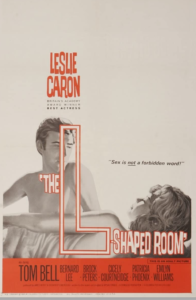
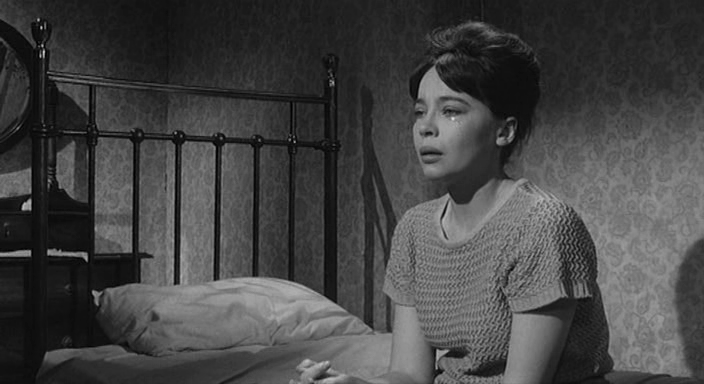
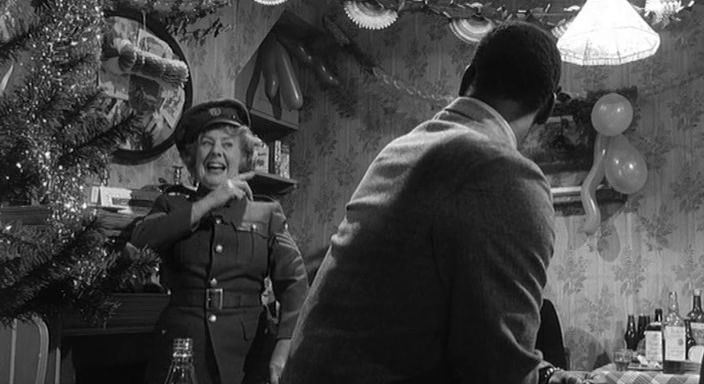

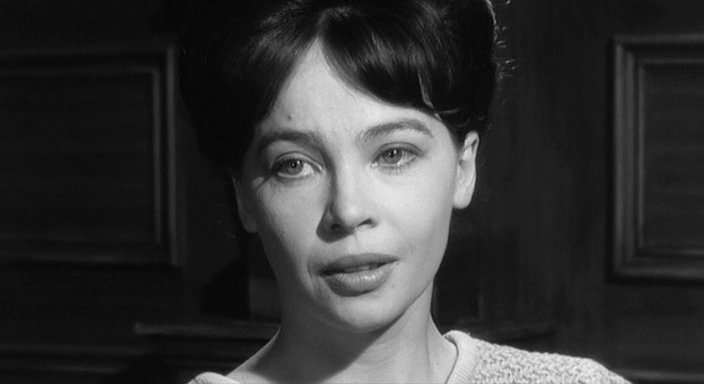
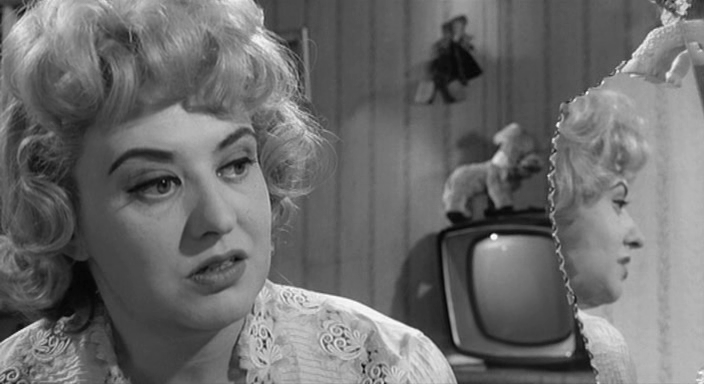
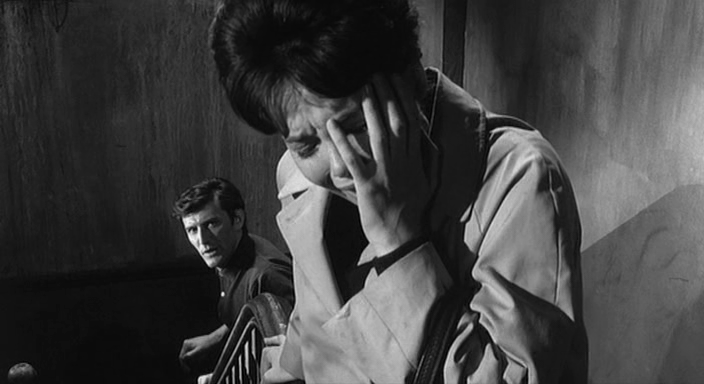
2 thoughts on “L-Shaped Room, The (1962)”
First viewing 12/27/20. Not must-see.
A moderately interesting ‘kitchen sink’ drama, notable in its day for the performance which earned Caron some awards (Golden Globe, BAFTA, Oscar nom) but which, nevertheless, hasn’t particularly aged well.
Saw this recently at a special showing in London with Leslie Caron herself attending. Afterwards there was a Q&A session where the 92 year old actress acquitted herself very well in discussing the making of the film, like how it was received, the change of director before shooting started and how she got on with the other other actors.
So I guess my view is somewhat slanted towards a favourable impression with all the background information and the whole screening event.
A typical British kitchen-sink drama it has been altered quite a lot compared to the source novel (the author Lynne Reid Banks actually died a few days ago). Nevertheless it did cover some daring themes at that time. The problem is that these usually never age very well so the whole thing comes over somewhat tame for contemporary audiences.
What is left is still a very well acted film (especially Caron, in what is probably her best dramatic role) with a lot of British actors who were mainly famous from tv except for Bernard Lee before he became familiar through his James Bond role as M.
In conclusion I think it is a one-off must-see film for its typical late fifties/early sixties flavour which was well captured by the director Bryan Forbes.